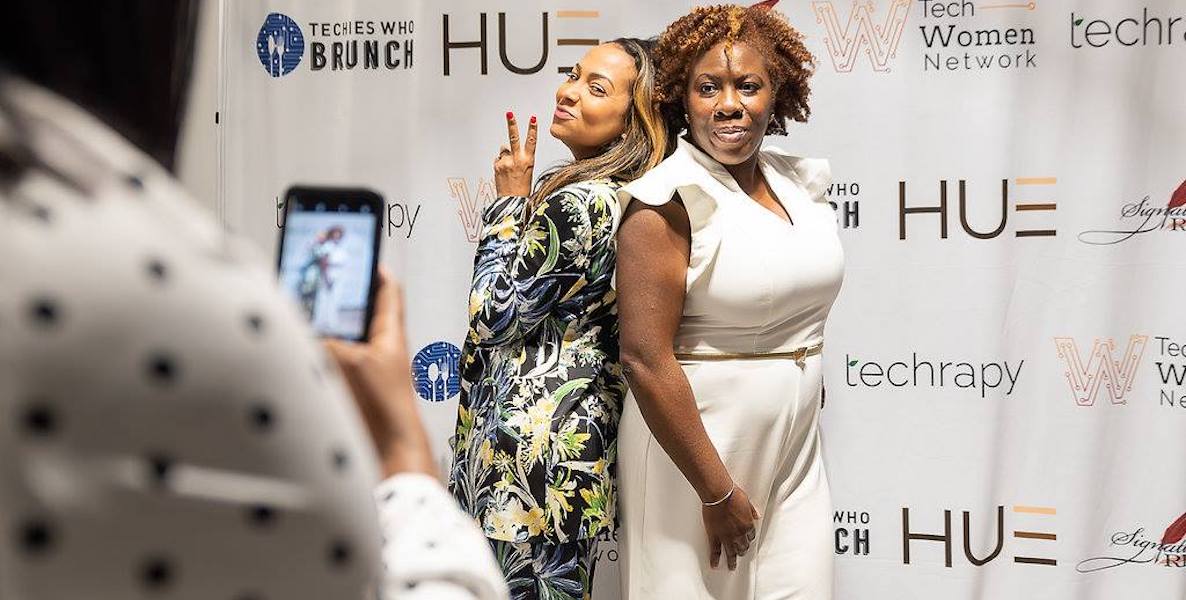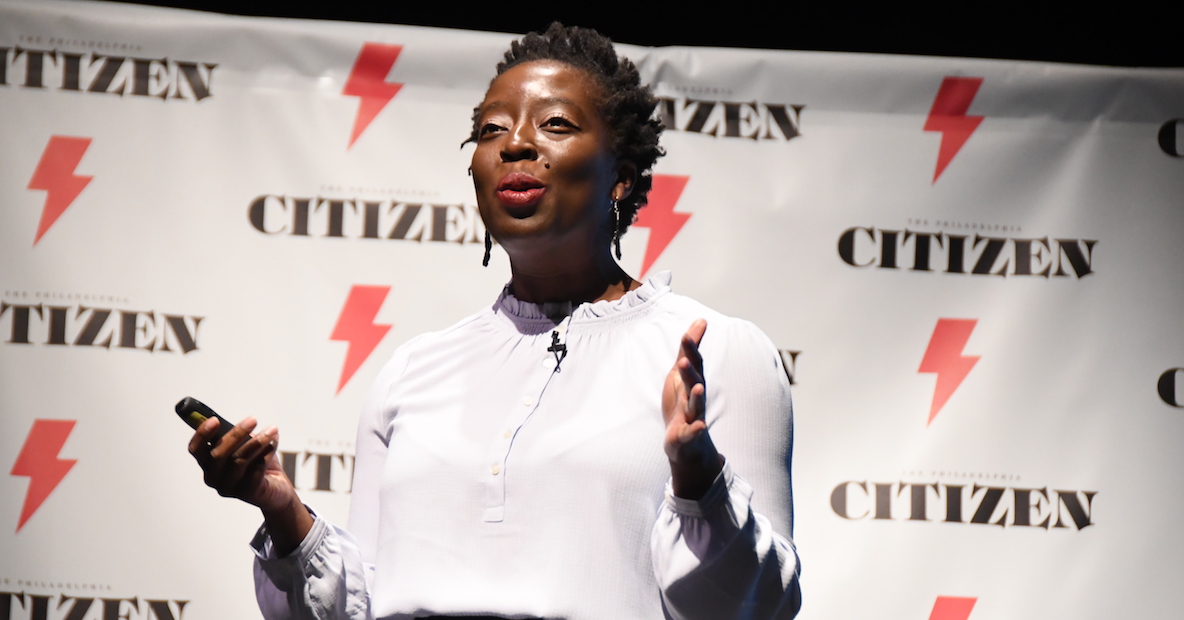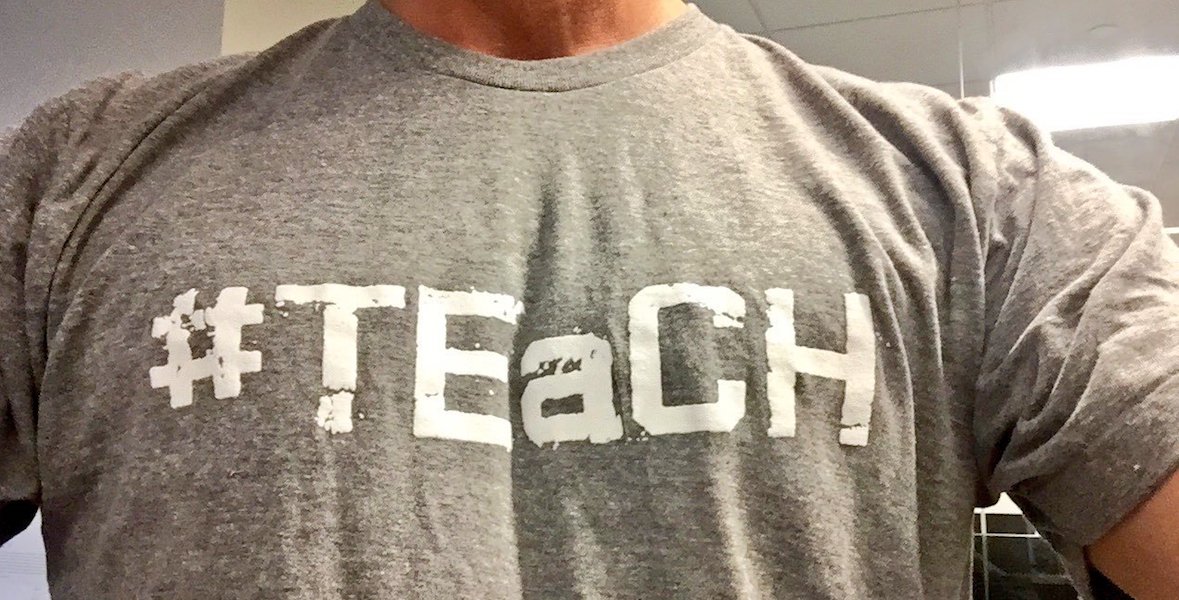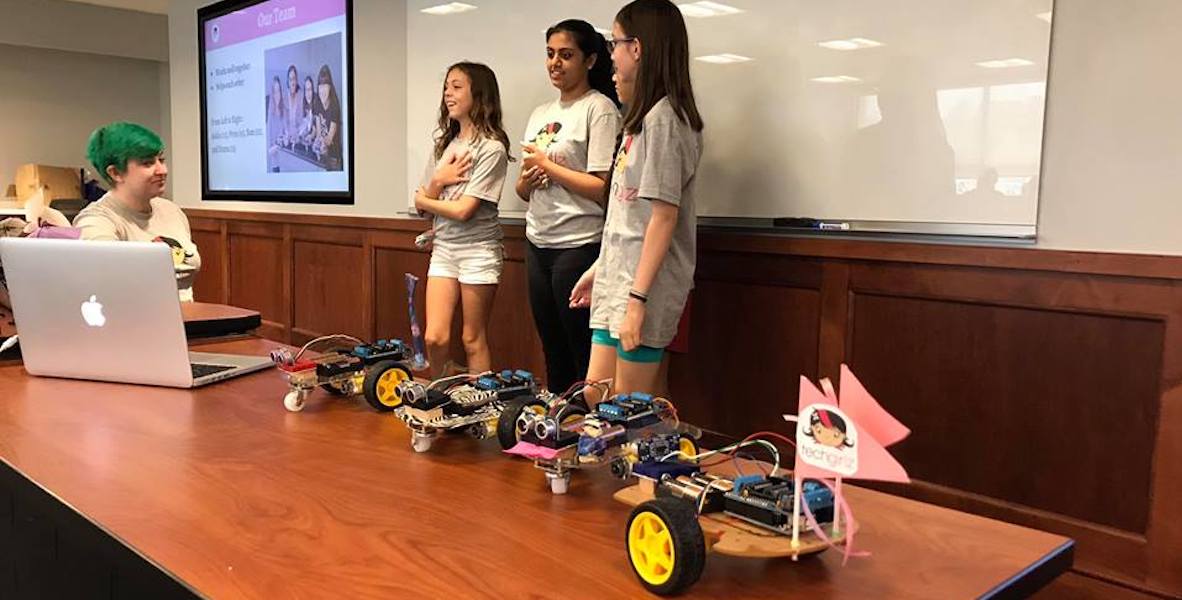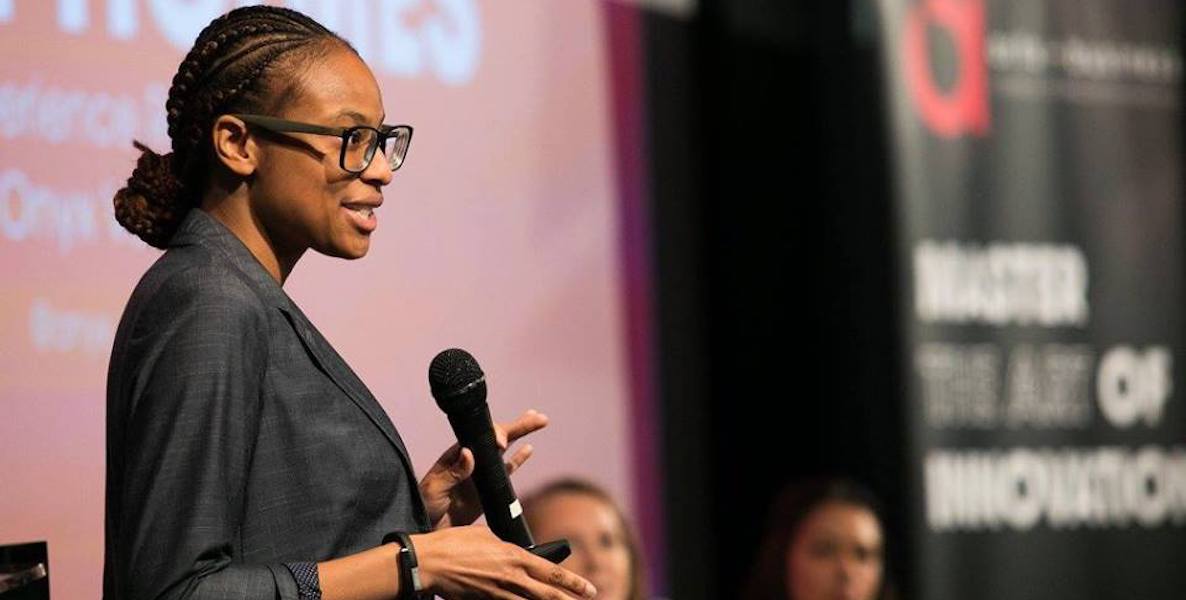Growing up in Philly, Kyree Holmes moved around a lot—she attended five elementary schools, two in second grade alone. But despite the transitions, one thing remained constant: She always had strong cheerleaders—her parents; a fourth grade counselor who explained the magnet school options to her parents; a second grade teacher who’s still a friend and confidante. Later, there was her masters thesis advisor at Carnegie Mellon University, as well as business leaders who mentored her, like Vanguard’s Reggie Murphy.
That support helped Holmes forge her path to Howard University and Carnegie Mellon, and into professional roles as a user experience (UX) researcher. But women continue to make up barely more than a quarter of all computer and math employees in the U.S., with women of color accounting for even fewer of those spots. So beyond just being a role model in her own right, Holmes recognized the need to proactively reach out to minorities to expose them to UX, and give them the tools to break into the field. “To me personally, it is even more important to get diversity in those UX roles because they are designing these experiences for all kinds of people,” she says.
“If you’re going into something knowing that you’re the only person who looks a certain way, there’s added pressure, an added piece of anxiety,” Holmes says. “So now, let’s remove all of that and just focus on the actual thing you’re trying to do.”
Holmes is committed to paying forward the support she received through the creation of Onyx Valley. A nonprofit fiscally sponsored by CultureTrust of Greater Philadelphia, Onyx Valley offers a series of programs that recruits and trains minorities who often overlook the UX field, and accelerates their professional experience.
![]()
“More than anything, Onyx Valley is a community that includes resources and pretty much all the people and things that you would need to get yourself established and started in a way where you can be comfortable,” Holmes says. “If you’re going into something knowing that you’re the only person who looks a certain way, there’s added pressure, an added piece of anxiety. So now, let’s remove all of that and just focus on the actual thing you’re trying to do. Think of a wobbly table—Onyx Valley is what goes under the table legs to stop the wobble. So now, you’re on par with everyone else.”
Jessica Press: Rookie Q here, but: What is the field of user experience, or UX [pronounced yoo ex]?
Kyree Holmes: The easiest way to put it is that user experience is about designing interactions for people with a product. Most often when you hear people talk about UX, it’s about something on a screen, like a website, an app, something that deals with the internet. But it doesn’t always have to be on screen: It can be in-person experiences, like when you go to Wawa and you’re trying to order something, they have kiosks, so there’s an element of digital and in-person, and service design. It can be even if you’re on the phone and you’re going through one of those things where it’s like “press one for this, two for that.” All of that is part of the user experience.
JP: What made you passionate about Onyx Valley’s mission of opening people’s eyes to the field, and then giving them opportunities to break into it?
KH: Once I got my first job out of Carnegie Mellon, I felt like I had finally reached one of my goals and was in a position where I could do something more about it. Knowing how I accidentally discovered UX—I’d never known anyone who worked in the field or even heard of it until I started looking at Carnegie Mellon—it was really important for me to try to figure out a way where someone else could get to this path more quickly.
JP: Onyx Valley grew out of the Institute of Hip Hop Entrepreneurship (IHHE). Can you talk about how that supported and nurtured your work?
![]()
KH: [Early on] I just had an idea about Onyx Valley that was very, very loose. It didn’t have a name, and I had all types of iterations beforehand. Through networking I met someone who told me about IHHE. I had heard of startup incubators and accelerators; of course you can go to any of those, but I kind of wanted another environment that would be comfortable for me to do something like this, which is really not an easy experience. I went to Howard, it’s an HBCU, it’s still a college, it’s still competitive and rigorous, but I had the added benefit of being in a place that was culturally safe for me and where I was around people who could relate to me.
So I kind of saw that same thing with IHHE—like, yeah, you can do an accelerator with one of the VCs or different institutions, but I knew that those classes would not look the same way that the IHHE class would look. They would have people more like me, people with similar interests; and for the most part, I’d say the majority of the students in IHHE, although it’s entrepreneurship, most of them were social entrepreneurs. It wasn’t really too many people who were trying to do like a strict like let’s make the next big thing that will make us rich!
JP:What kind of programming does Onyx Valley offer?
KH: We have one-off workshops on different topics, like introduction to field research, letting students know how to do research where you’re actually in the environments, not necessarily doing a one-on-one interview; or teaching them about fly-on-the-wall observation, that sort of thing. We also have the one-week boot camp, which is much more intensive. It’s meant to be a crash course in UX. The students come out of it with the beginnings of a portfolio that they can start using to interview with employers for internships or for graduate school applications or for other UX-specific program applications. We also have Onyx Valley Studios, a student-led agency that has solved business challenges for local groups like Spruce Street Harbor Park and the Office of Immigrant Affairs. It offers a combination of lecturing plus hands-on experience, plus actual chances for students to interact with clients and get that experience as well. Sixty students in total have gone through our programs since we launched in 2017.
JP: When it comes to the lack of people of color in tech, leaders in the industry often say it’s a pipeline problem, without addressing why that’s the case. Can you talk about some of the barriers keeping people of color from getting into fields like user experience?
![]()
KH: I was looking at something the other day about coding, but it applies here too, saying that a lot of students who go off and get great jobs as engineers, they already knew how to code when they were in, like, fifth grade, so none of that even began in college. And so you start thinking, Did my elementary school offer coding? No, it did not. So I come into college thinking I can get started with my career, but then there are people who have had not only their regular schooling, but their parents had the ability to enlist them into other programs outside of school to make sure that they’d be super-prepared. Even the spelling bee with the eight winners—I read that many of those winners had a program that was hundreds of dollars a month! So there’s definitely an absence of opportunities.
And not only an absence, there’s almost a denial of knowledge about opportunities as well. You don’t know that there are classes that will teach you how to beat the SATs, and how to code, and how to design until you’re in college, and by then the people in your college classes are telling you about all of the programs they’ve done for the last four, five, six years!
JP: Onyx Valley to the rescue.
Interview has been edited and condensed.
Photo via Onyx Valley


